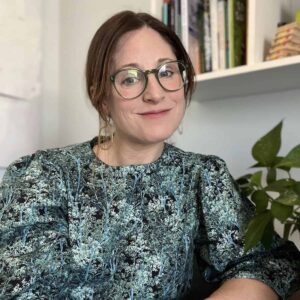Autism. It’s just one word. But if you’re reading this, it likely stirs up many feelings.
If your child has just been diagnosed, you may feel relief. You may also feel fear or sadness. You may feel anger. Maybe you’re confused. You may feel like running away. You probably want to hold your child tight (either physically or in your mind) and close out the world for a minute. A new diagnosis can be… a lot.
Making sense of an autism diagnosis takes time, no matter how you feel about it.
The first time I heard “autism” in reference to my son, I felt an immediate lump in my throat. I couldn’t hear the rest of what the psychologist was saying. I felt annoyed at myself that I told my husband he didn’t need to come, and I felt confused. I was angry with myself for having these feelings. I did not want to label my child as autistic because it felt somehow too simple.
As the psychologist spoke to me, my inner dialogue began, “He’s a person, he’s so much more than a diagnosis. A list of symptoms does not begin to describe who my son is. You don’t even know him.” I left that meeting, picked up all of my children and took sandwiches to the park. I left my phone in the car. I shut the world out for a minute and held my kids tight.
In the months that followed, I joined parent groups on Facebook. I had school meetings. My son and I became involved with a sports group for autistic kids. I still wasn’t sure if I agreed with the diagnosis, but I researched anyway. I learned a lot from the groups and I noticed that a lot of the questions that other parents had were questions that I had too.
And I realized something that I thought I already knew: autism is a huge spectrum.
This probably isn’t news to you either. I’d heard it many times, but finally I understood.
The diagnostic criteria that define autism do not define my child. They do help describe my child AND my child is more than a diagnosis. So is yours.
This is where I realized what was great about this new diagnosis.
Understanding that your child is autistic raises our awareness and empathy for our child’s experience.
It helps to piece together certain behaviors or preferences that may have seemed unrelated. It helps us understand how hard our child is working at any given time. And it can help us learn how to help them address their needs and manage their emotions (sometimes this means managing our own emotions too… imagine that).
Understanding that your child is autistic opens doors for connections with other families.
These families will celebrate with you when you realize you’ve experienced your first trip to the playground without any ‘incidents’ with other children. They let you cry when you get those calls from school that we dread, and they share advice for how to survive birthday parties. There is a community out there for you. Just like our children, we are not all the same either, so find the group that resonates with you, the group that you need at this moment in time.
A diagnosis fosters access to services and supports.
Increased awareness in the schools and community means increased sensitivity to our individual needs as people and children. It means previewing a classroom before all of the kids come in. It means attending the museum when the lights are low and crowds are gone. It means practicing boarding an airplane before the actual travel day. It means accessing sports programming that understands people can listen without looking. It means school programming that supports different modes of learning.
I still don’t know if I agree with the diagnosis of autism for my son. But I’ve come to understand that it doesn’t really matter if I do or not. For our family, the diagnosis has opened our world to a community and to resources and services. Sometimes they’re a good fit, sometimes they’re not. But that’s just because every child and every family is different.
We have learned that we have choices and more importantly, we are not alone. Most of all, I’ve grown to celebrate our place in a world of neurodiversity, of people with different brains, different ways of thinking, different passions, different preferences, different expressions and, in our family, different ways of sorting Pez containers.
Learn more
If you are working to make sense of your child’s autism diagnosis, we suggest learning from autistic self-advocates and their allies. Here are some of our favorites.




